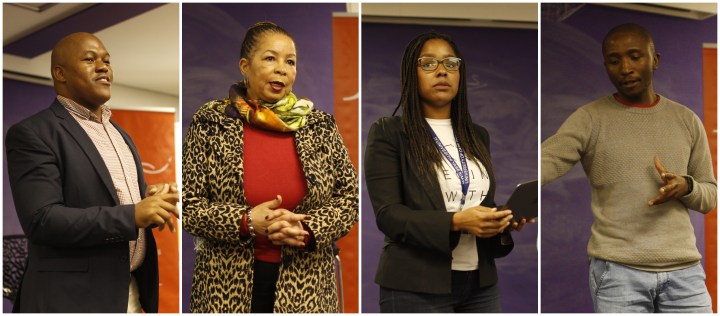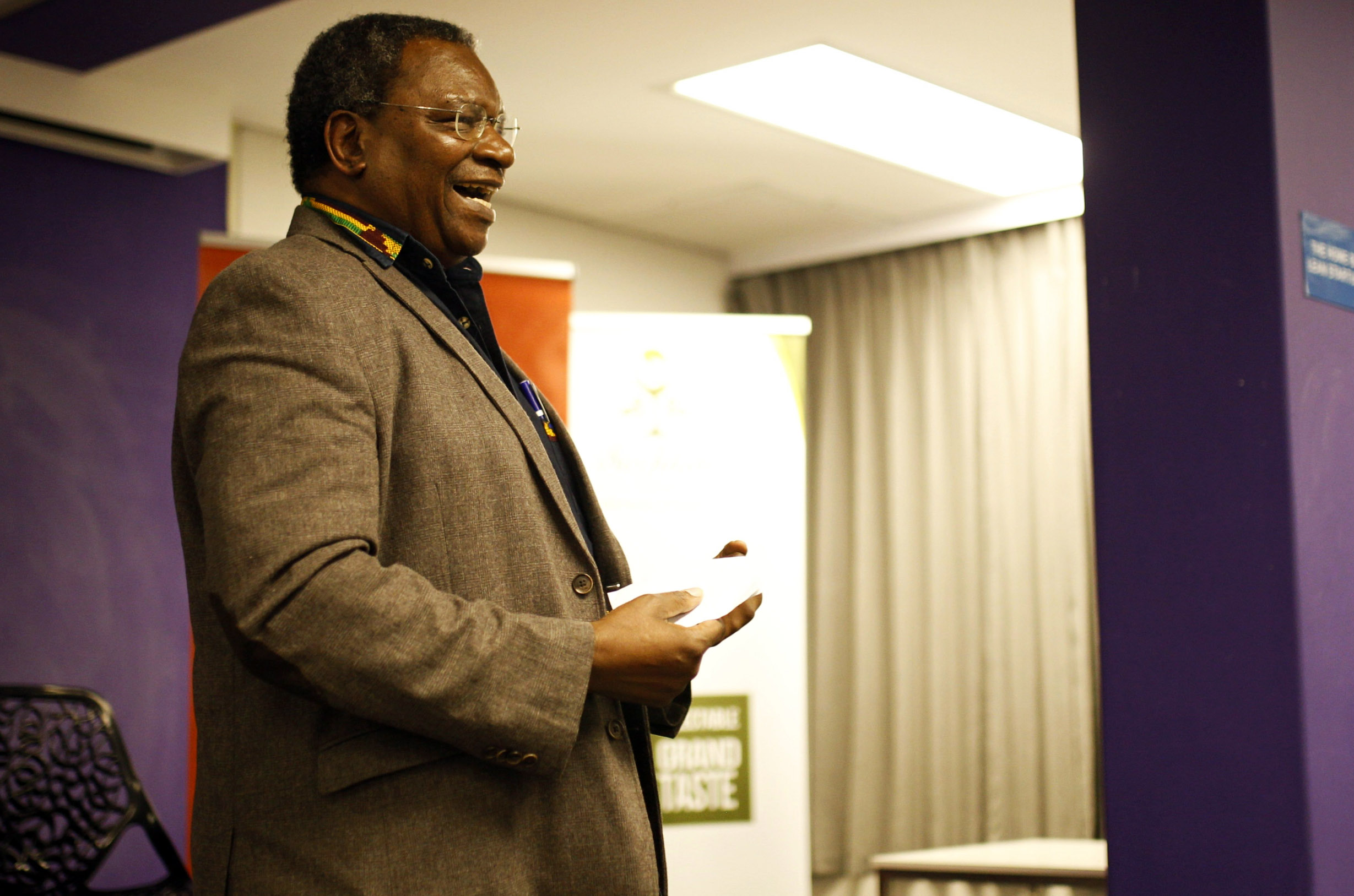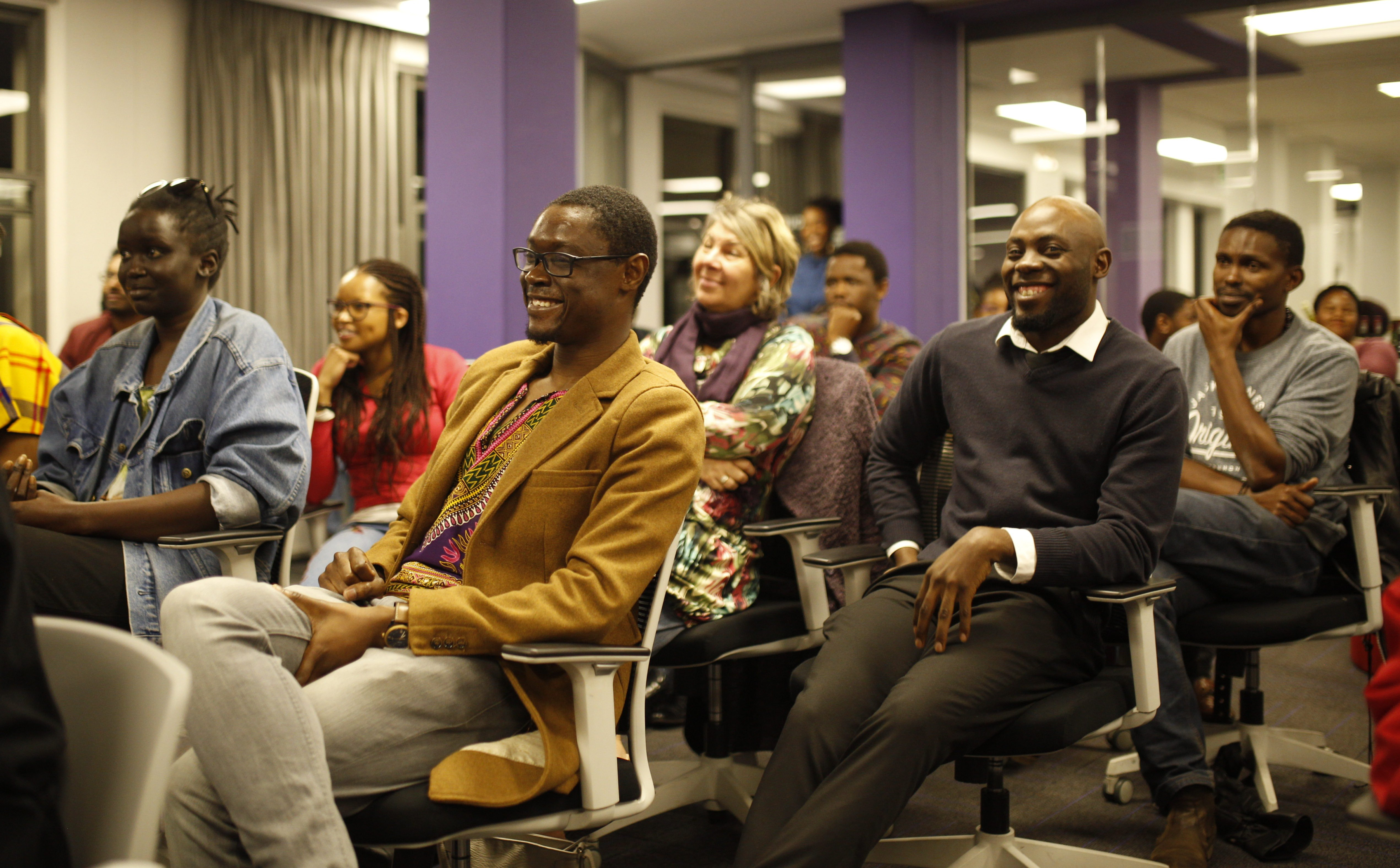Empowerment
A daily struggle: The business of being black

Over 24 years into democracy, black people still feel alienated and excluded in the workplace. A panel discussion was held in Cape Town to create a space for discussion and to suggest solutions.
“If you are black in South Africa’s world of work, it is a daily struggle against a system that constantly alienates you, aiming to exclude and sideline you. If you are black, you are never good enough.”
This extract from Wiseman Magasela’s The Invisible Black Professionals, published in 2000 in the Mail & Guardian, formed the inspiration behind a discussion called The Business of Being Black, at the weekend at the UCT Graduate School of Business.
Professor Shadrick Mazaza, the founder and CEO of the African Consciousness Institute (ACI), which hosted the event, questioned why is it that black people in South Africa still feel alienated, excluded and taken for granted in the workplace over 20 years into democracy?
Why is it that black people in South Africa can still relate to Magasela’s article?

Prof. Shadrick Mazaza opens the discussion at the UCT Graduate School of Business. Photo, 20 July 2018, by Aphiwe Ngalo
Mazaza is an associate professor at the University of Cape Town’s Graduate School of Business. He currently teaches on authentic leadership and personal transformation.
“The work that I do is self-knowledge. Being you where your power lies, whatever you want to do in life.”
Mazaza believes that the key to black people taking their power back in the workplace is to take back “personal powers” first. He says that black people should be rooted in themselves and be confident in their African identity.
He used the analogy of a tree and the fruits that it bears to describe business organisations and the many arguments that people have had against affirmative action unequally benefiting black people.
“If you see things such as BEE (Black Economic Empowerment) and Affirmative Action as fruits, and yourself as a tree, no one can take your power away from you. People can take the fruits, but they cannot move the tree.”
Mazaza said that it is important that black people see themselves for who they really are and not for who people have said they are for over 400 years. “Let’s look at what contribution we’ve had in the world, where did the US and Europe get their wealth from? Us. Minerals, education, principles, even religion, most Western religions are founded on Egyption religions, it dates all the way back to Egyptians. We are powerful,” he said.
Mazaza said that it was important that Africans unite, regardless of which part of Africa they come from. He argued that national boundaries are not real. “I like to joke and say they (national boundaries) were drawn by some drunken Europeans in Berlin years ago. They’re not real.”
The four panellists were Andile Nomlala, Aisha Jackson, Phumelele Ndzuta and Christine Qunta.
Nomlala, who is Black Management Forum (BMF) Chairperson for the Western Cape and founder and CEO of Ngwayibanjwa Consulting Services. Nomlala, spoke about how black people often feel suffocated in the workplace.
“You are overlooked, taken for granted, and when you point that out you look ridiculous. Don’t ever make the mistake of pointing out an individual white person as racist, you will look ridiculous, point out the system. Let’s attack the system,” he said.
Nomlala said that black people often tolerate mistreatment and racism, and such conformist attitudes have a spillover effect, affecting the next black person.
“The dispossession of black people has always been linked to legislation and it is important that black people reverse the same system via a legislative element,” he said.
Nomlala announced that BMF is currently in the process of setting up a litigation fund, where they will open offices around the Western Cape so workers can consult legally if they feel that they are being mistreated.
Nomlala was followed by Aisha Jackson, one of Mazaza’s students, who shared notes on her Master’s thesis, which is based on being an African woman in the workplace and experiencing bias based on appearance.
At her last corporate job, Jackson decided to go natural, a moment she described as life-changing because she has been relaxing her hair since she was 12 years old.
Jackson was working for black women-owned business and surprisingly her boss told her that she did not like her natural hair. “She said the clients won’t like it, she told me to take it off.” Jackson then decided to braid her hair because she felt that was more socially acceptable and because she had been forced to conform.
This inspired her to base her thesis on black women’s experiences in the workplace and the prevalance of appearance bias.
Jackson’s study contained interviews with creatives and corporates, most who had spent time in africa or were African. The study found that based on these black women’s experiences, gender and race bias existed, and that black women were affected the most.
The bias was more prevalent in conservative and european environments. There was a perception bias, where certain stereotypes were attached to black women with natural hair. These stereotypes implied that the black women with their natural hair were more “ghetto” or unclean, that they lacked ability and intelligence and that they were likely to be more aggressive.
Jackson said that there was also bias based on attire, skin tone and body shape and black women were often subjected to looks of disapproval.
The black professional women interviewed said that they were expected to look as close to white women as possible, and if they did not assimilate, most would at times end up being made to doubt their own ability and intelligence.
“A lot of these women that I spoke to said that they often felt the need to be over-prepared, to work harder, some even explained it as a continued nightmare… I saw myself in their identities,” she said.
Jackson said that the study concluded that appearance bias does hinder opportunity.
Phumelele Ndzuta, the third panellist, founded the Black Organisational Culture Connection (BLOCC). BLOCC aims to organise spaces where black people can interact and connect in African working environments where they can be themselves.
“If you put someone who is used to driving a manual car into an automatic car, they will struggle even if the performance of that car is better. It is about the environment that you are put in. It’s the guy who is used to interacting with that car will be the better driver, he’s used to it,” Ndzuta said.
Ndzuta used this example of a manual versus an automatic car to explain how black people can sometimes feel out of place in the workplace. He said that interactions in the workplace often affect performances.
“When we (black people) are back home, we greet everyone but when you get to the office people don’t. Have you ever sat in a meeting and felt uncomfortable, and thought that maybe if you had walked in and greeted everyone you would feel better? White people’s interactions in the office are usually more transactional. I only speak to you when I need something. There’s a lack of emotional connection.”
Ndzuta said that the Western system of work is very different from the African system of work, and that the well being and emotions of the worker should become more of a priority.
“The Western system is not necessarily a good system because look how many of us it has left outside. That’s why we as black people should try and incorporate more of our culture in the workplace,” he said.
Ndzuta also said that the Western system is built to make black people compete against each other and to shoot each other down to get to the top, but at the end of the day, everyone in the workplace is trying to achieve the same goal. He said that it was important that people remember that in the workplace, you are a team and not competition to the next person.
“Last week I was back home and we were trying to move a truck as the men of the family and the mission was achieved by helping each other, by laughing and working together. And at the end, there was the reward of beer, but no one said, I deserve two sips because I did most of the work.”
Christine Qunta, who is an author, lawyer and former anti-Apartheid activist, said that these kinds of spaces that the ACI had created are important, especially in Cape Town and Johannesburg as there is a huge sense of alienation among black people in the bigger cities.
After returning from exile in 1993, Qunta worked at Sanlam Law. She often felt out of place, because her colleagues were only used to interacting with black women who were domestic workers. Qunta authored the book, Who’s afraid of affirmative action? A Survival Guide for Black Professionals in which she speaks about her experience in the professional world, and how, for example, she felt alienated when her colleagues would speak Afrikaans in meetings.
Qunta spoke about 1994 and how she believes that it was not complete liberation for black people, but a removal of apartheid legislation. Even though some things have changed and 1994 has brought some relief, she believes that South Africa was given the form of democracy but not the substance of it because the middle-class black people are still indebted and the white minority is still in control of the country. Qunta said that there needs to be more trade unions for the middle class.
“The limited power of government is constrained by the economic power of the minority. The problem is the system. I looked this up the other day and 68% of white people make up top management but only 14% of black people make up top management. I think the solution is for black people to start their own businesses. Let’s think strategically.”
Qunta said that companies often only hire black people because they have to comply with Employment Equity legislation. These companies will have a majority of white people in top management positions because they assume that white people are more experienced.
“The first wave of BEE had a lot of white top management because those were the people who knew and had experience, but that was true in 1994 not now,” she said.
Qunta said that we cannot move forward as a nation if there is not an emphasis on justice.
“The emphasis was placed more on forgiveness and not justice in 94. It was a compromise because they did not want more of our people dying. But I think that the 94 settlement did not stop what will eventually happen. People’s anger, humiliation, white arrogance, exclusion, their ‘investors won’t come if you touch the land’ comments will lead to an upheaval, and it will be a racial one,” she said.
She added, “You can’t use unscientific, irrelevant concepts like rainbow nation, reconciliation, how do you forgive people who have not asked for forgiveness? People who have not acknowledged their wrongness?”
Qunta said that black people need to start their own businesses to address the flaws in the corporate world. They need to think strategically and fight the unequal system of this country at a legal, political and social level.

An active crowd listen as speakers engage. Photo taken at the UCT Graduate School of Business on 20 July 2018, by Aphiwe Ngalo
The Business of Being Black was held to challenge the ideology of black people who find themselves in alienating workspaces and to suggest solutions on how corporate South Africa can be more transformative. DM














 Become an Insider
Become an Insider